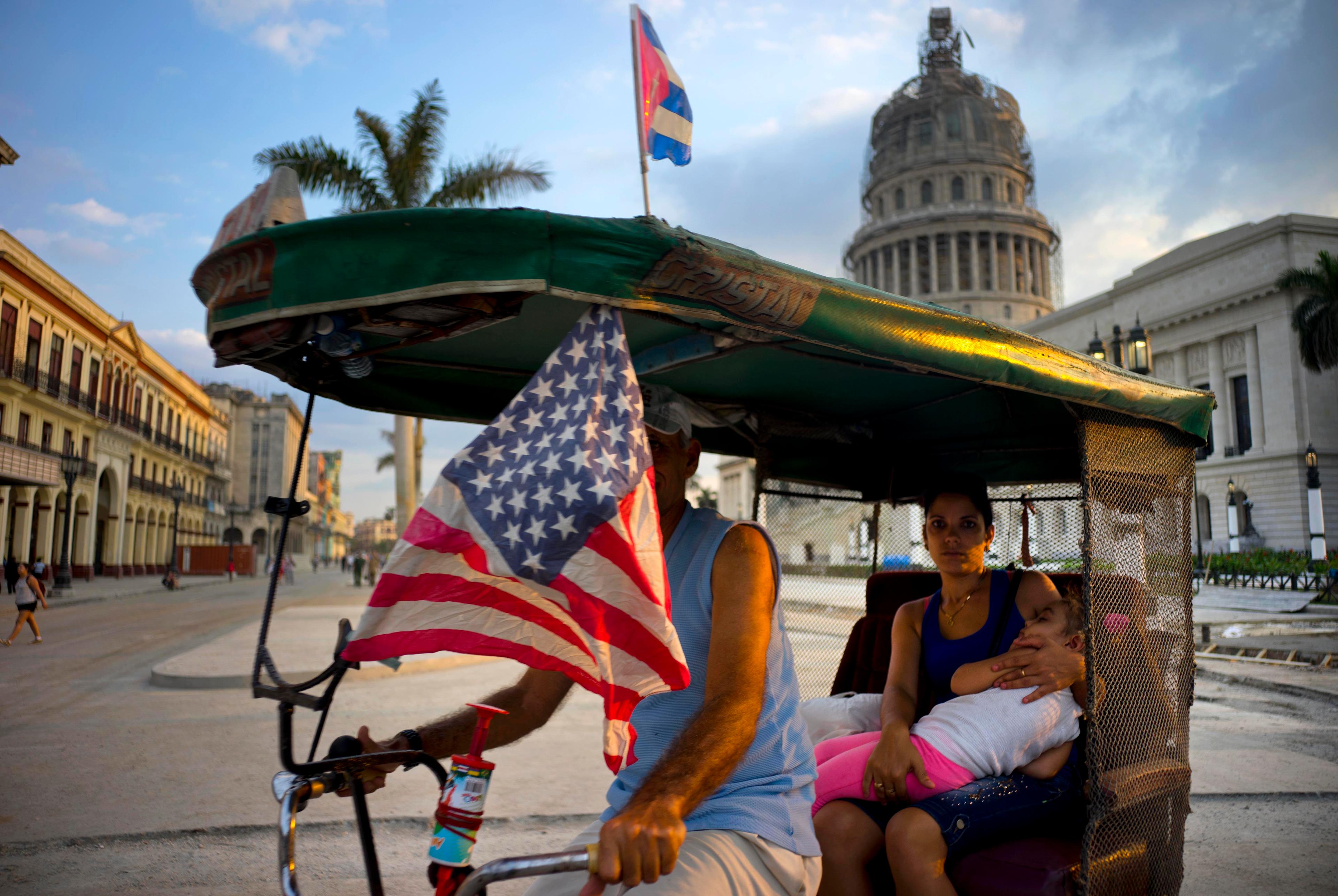
President Obama's visit to Cuba -- the first by a sitting U.S. president since Calvin Coolidge went 88 years ago -- is being followed closely by Colorado's small and tightly-knit Cuban community.
We speak with three Coloradans -- two who were born in Cuba and one who has a Cuban-born mother. All have visited Cuba and plan to be involved in the country as U.S.-Cuban relations improve.
Maria Garcia Berry, who runs a public affairs firm and is a member of the Cuba Study Group, speaks with Ryan Warner along with Elaine Berman, who served on the Denver School Board and has been working with health care providers in Cuba, and Bill Vidal, who was Denver's mayor and is the subject of a film being made about his childhood in Cuba.
Warner also spoke with Rep. Ed Perlmutter, a Democrat from Golden, who traveled with President Obama to Cuba this week. He said he was asked to make the trip because he supports lifting the decades-old embargo against Cuba.
Perlmutter says some people in the both countries are still living in the 1950s and 60s.
“The world has moved on and it’s time to lift the embargo and it’s time to broaden the relationship we have with Cuba," he said.
Read other highlights below:
Maria Garcia Berry on what Obama's visit could mean:
"I'm hoping the president's visit really strikes a chord among the Cuban people and the fact that they can be able to learn a lot about us and about how the United States does things. Particularly in terms of democracy, civic involvement and economic prosperity."
Elaine Berman on how things haven't changed:
"When you ask people what changes have been made since the president first opened up things in December of a year ago, they basically say not very much. That their life has continued as it was before. The level of poverty is still pretty entrenched. Where you really see the differences is for the people that have taken advantage of being an entrepreneur and opened up small restaurants, opened up their homes to visitors so people could stay there. But as a general rule, the people have not seen too much change."
Bill Vidal on what will cause change:
"What is really important, that I see, is that the veil of fear is removed from the Cuban people and the American people. And understand, that we are brothers and sisters in this planet and that there's nothing to be afraid of. And the minute that they start interacting with each other, you will see huge changes come. ...
"You'll see the real change not so much among the politicians who will always grandstand and always say the politically correct thing for their audiences. The real change will happen when we start intermingling with the Cuban people."
Bill Vidal on democracy in Cuba:
"We do business with China, which is a totalitarian government. And yet they have a free market economy. I don't know, from my perspective, that making Cuba democratic should be the goal as much as we should try and see how we can become friends again."
Bill Vidal on the trade embargo:
"The old domino theory still lingers -- that communism was out to overthrow capitalism and so on. I think on the Cuban side, when I visited Cuba in 2001, the embargo has been used as the reason why Cuba doesn't open itself up -- that it must protect itself because it's right next to the biggest power in the world who wants to run their lives. It's been used by the Cuban government to pose fear among the Cubans."
Bill Vidal on what Cuba can teach the U.S.:
"Just like you do with a normal relationship with a normal person, you both have strengths and weaknesses. So hopefully what we can do is learn from them as well. That we go there as friends with open arms, with respect for one another. Knowing that we both have something to offer one another. ...
"We should be open to the fact that they've learned a thing or two about health care, about education. I think there's a lot of conservation issues that Cubans have had to deal with just for not having things that we could also learn. I also sense, when I was there, that there was a strong sense of community that we could emulate. Where people look out for each other and help each other out."
Elaine Berman on Cuban-Americans returning to the island:
"When you speak to people in Cuba, they have quite a strong resentment for the people that left and have built this wonderful new life and are very successful and have a lot of material goods. And there's a resentment and a fear that those people are going to want to come back, the Cubans that left, and are going to want to buy up Cuba and take advantage of the new open doors. While the people that have stayed in Cuba have lived through extreme poverty, extreme malnutrition."









